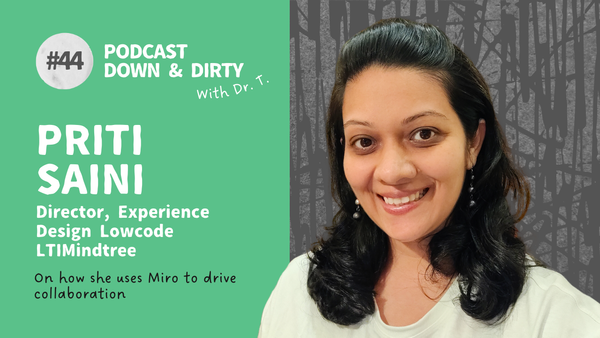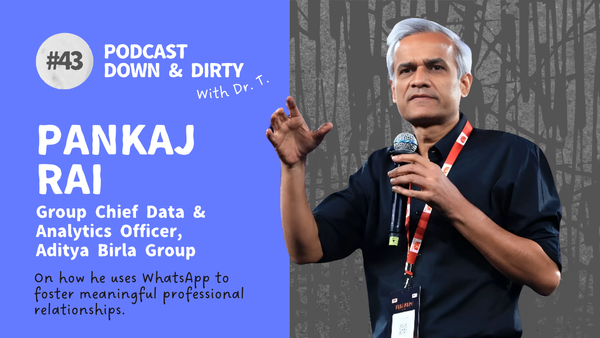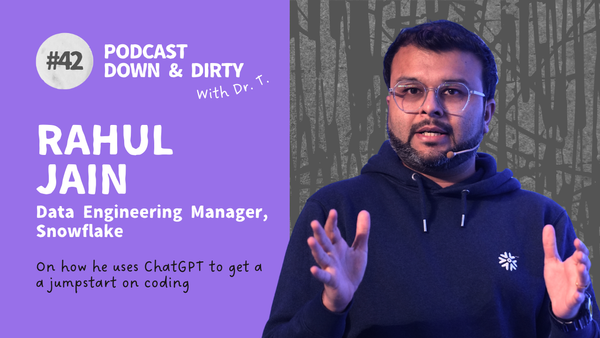💬Why does Tanisha's Psych degree have a short shelf life?
A young Psychology-major-turned-artist is looking forward to herself as a brand, hustling for her passions.

Written by Shivani Govind
I interviewed a spritely Tanisha* last month for a Poocho research initiative exploring the ‘Future of Education.’ As we flowed through her journey as a student so far, charting the dilemmas and decisions students face around investing themselves in specific degree tracks - Tanisha was quick to get on-board, keen to take me over the regrets she feels in trying to do things conventionally.
- Female
- 20 years old
- Bachelor’s degree (Psychology)
- Lives with family in New Delhi
On being a “good child”
“I am doing this to pacify my parents mostly, and as soon as my exams are done, I am off to the hills…”, Tanisha said, chuckling to eventually sigh, as if holding back what felt like a hopeful impatience to live out her authentic calling. The “this” refers to her undergraduate Psychology degree that is a stop-gap of sorts until she can get back to her pursuit of art.
“Basically, my whole family is into education,” she admitted. Both academics, they understandably pampered their daughter, placing their hopes on her to achieve in a manner they had (at least to the level they had, if not their original IIT dream). It was important to them for her to stay close as well, effectively altering her college experience forever, having to pick the local campus over Bangalore, which she knew would have been a whole other life if she had levied it. And, then Covid19 stripped that space of self-discovery short too.
“My parents will kill me if I don’t get my degree, for real! They have always been supportive, you know...I changed from engineering to psychology, and then now just six months ago I dropped this bomb that I don't even want to pursue psychology, and they were okay with it. They didn’t pester me. They're okay with me traveling this much, traveling with the opposite sex, which is a big plus…”, she pointed out, conveying the radical importance of her parent’s continued support and trust behind all her decisions & negotiations with her own impulses.
“Apart from this being a compensation for being a good child, I do realise the value of a bachelor's degree...it might not help me land opportunities in my field, but at least it'll help me land opportunities, I guess,” she surmised.
In the pursuit of happiness
Tanisha chose to persevere, not rebel but subvert challenges with her creativity, backed by authentic communication, and a sense of personal accountability.
“I did not know...I knew that I had an artistic side, but I did not know that I can actually have a career in it. Like initially, I told you that I wanted to take this year and explore some professions that people are doing where they’re actually making money while having fun, contrary to the belief that your job should not be fun, and like that 9 to 5 thing... I don't think I can do that.”
During the lockdown, Tanisha began perfecting her craft, leveraging her own creative impulses, YouTube and her travel inspirations to slowly birth a vision for herself that had nothing to do with treating complexities of the psych. Tanisha is already a kind-of successful artist, having set up her own boutique clothing and clayworks brand over the last few years. After having serendipitously encountered ‘others like her’, who are already crafting the life they want to live now, not post retirement, she exclaimed that she has found the confidence and faith she needed to risk it all on her desire to create and sell art. “People bought my t-shirts and trays at an art fair, and I finally had a liberating feeling…thinking -’ yes this is possible!”. I was as surprised and thrilled as she was, if I was being honest.
As we concluded our interview, I sensed a little bit of wistfulness in her voice. She confided that she was itching to pick up her networking where she had left off, she wanted to meet more artists and really ‘get on with it’ - “I made two very cute friends, who I met at Poochki (art festival), even they have been very, very supportive...they're always pestering me to start putting content on my art account, and like always helping me come up with ideas...they’re very big inspirations, just living life the way they want, and it's really, really inspiring to see adults have fun, you know…
Imagined futures
Tanisha helped make clear how Zoomers have finally managed to resolve tensions without the need to rebel or suppress, asserting autonomy early in life, unlike their counterparts who had been negotiating contradictions with tradition, buckling down and ‘sticking to the script’. “Unlike in the past, these students are not moulded by parents who demand they become engineers or doctors. That kind of thinking seems to have gone out the window,”, explained Lakshmi Iyer, executive director of education at Sannam S4, told University World News in this article exploring this very shift in generational values that are shaping higher education goals differently, and I couldn't agree more.
I could see why moving to the hills made most sense for someone like Tanisha now. I wonder - for those making a break from tradition, what are the credible learning avenues to trust in, and can the economy deliver on those dreams?
*Names are changed to protect participant identities



